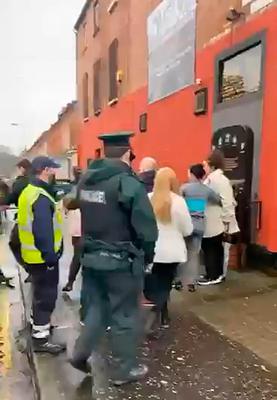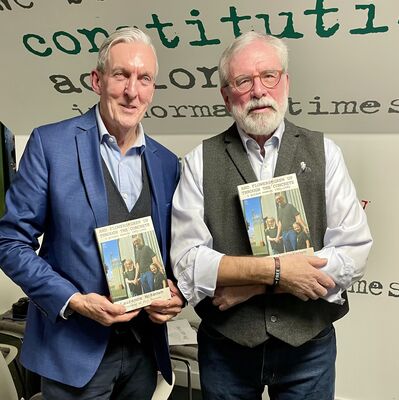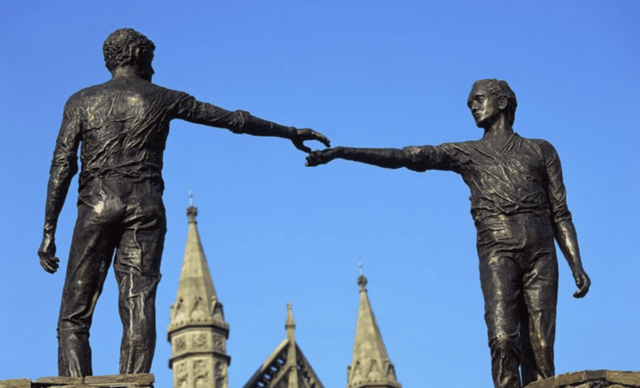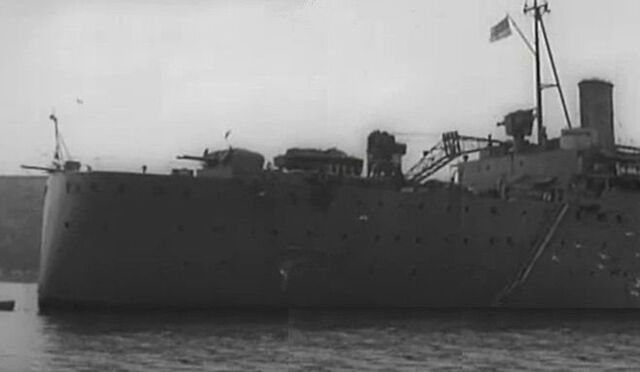ALL societies need a police service. A police service that works in partnership with the community and with citizens. Community policing is not the same as policing the community. A policing service is different from a police force.
The North does not need another state police force. We had that with the RUC. For 80 years that paramilitary organisation, along with the B Specials, functioned as the armed wing of the unionist/British state and employed a plethora of special laws and repressive techniques to maintain unionist domination.
The Good Friday Agreement established the Patten Commission as a means of creating a new beginning to policing. Progress was made. But in the Past few weeks a series of events and issues have emerged that have inflicted significant damage to hopes of the Patten vision and the PSNI.
The Ormeau Road debacle was one such event. The tactics of PSNI officers dealing with relatives and survivors of a loyalist massacre caused widespread anger. The behaviour of the PSNI toward Mark Sykes and others also drew attention to the withholding of vital evidential information to the Police Ombudsman’s investigation into the Ormeau Road bookies attack.
Last week’s anniversary of Pat Finucane’s murder by a unionist death squad, acting in collusion with RUC Special Branch, British military intelligence and the Force Research Unit, also highlighted the ongoing refusal of the PSNI and the British state to open the books on the use of collusion as an instrument of government policy.
And then there was the revelation that the tapes of PSNI interviews of two investigative journalists were blank when handed over to them.
Trevor Birney and Barry McCaffrey produced ‘No Stone Unturned’. The documentary examined the 1994 Loughinisland Massacre in which six men watching a World Cup soccer match were killed by a unionist death squad. Two of the weapons used in that attack were part of the South African-sourced arms shipment which arrived in late 1987 for the UDA, UVF and Ulster Resistance. It was stored for a time at a farm in South Armagh which was the centre of activities for the infamous Glenanne Gang. This gang is known to have killed upwards of 120 people and involved members of the RUC and UDR.
Subsequently, in July 2018 the two journalists were arrested by the PSNI for allegedly handling a stolen document used in the documentary. Research material, including computers, cameras, notebooks and files were taken from their homes and offices. In July 2020 three High Court Judges ruled that the PSNI had wrongly obtained warrants to carry out the raids. The judges said that there was no basis for the arrests of the two journalists. Lord Chief Justice Sir Declan Morgan also said that Trevor Birney and Barry McCaffrey had acted at all times as investigative reporters and in accordance with their professional code.
Remarkably the only person ever detained by northern authorities in relation to the massacre of five nationalists at the Sean Graham’s bookies on the Ormeau Rd in 1992 was one of the survivors who arrested laying flowers at a prayer vigil for families of the deceased this week. pic.twitter.com/uFabavoSYl
— Dr Conor McNamara (@ConorMacHistory) February 10, 2021
He said: “We see no overriding requirement in the public interest which could have justified an interference with the protection of journalistic sources in this case.”
The following December both men and the company, Fine Point Films, were awarded over £800,000 in damages.
The PSNI also agreed last November to hand over to the two journalists the recordings made by police officers of the interviews they carried out with both men. The tapes arrived with the legal representatives of both men last week but when they were played they were blank. The tapes included the opening introductions of the interviewing detectives and that was all.
Subsequently the PSNI said that the “error” was “not intentional” and that it would investigate the matter. However, it would appear that even before it carries out its investigation the PSNI has already made a determination that what happened was an “error” and “not intentional”.
Trevor Birney echoed the concerns of many when he said: “After all we’ve been through, how can we not but think that someone within the PSNI was at their work. These tapes just didn’t erase themselves... Once again, the PSNI is launching another investigation in relation to Loughinisland. When are they going to get around to investigating the actual massacre of six innocent men?”
So, once again the failure by the British government and the PSNI to implement previous agreements, including the 2014 Stormont House Agreement on Legacy, has only served to further undermine confidence in policing. Serial apologies by Chief Constables are not enough. Real change is needed in the attitude and behaviour, openness and accountability of the PSNI. Too many relatives of too many victims have been told that information relating to their cases is locked away for decades to come. Others believe that information in their cases is deliberately buried in the archives of the RUC held now by PSNI. If the PSNI Chief Constable Simon Byrne wants to forge a different future for policing then he needs to go back to the vision of Patten.
New York encounter
I DOWNLOADED a new album, Cheek to Cheek, by Tony Bennett and Lady GaGa. It is brilliant. I am a longtime fan of Mr Bennett and, in more recent times, Lady GaGa.
Cheek to Cheek is an invigorating stroll through some old favourites like Anything Goes and, of course, Cheek to Cheek, alongside more modern melodies. Tony Bennett is 94 years of age. He is also suffering from Altzeimer’s. You wouldn’t know that from listening to him singing on Cheek to Cheek. But, according to his wife, that’s the only time recently that he has been his old self. At other times he appears to be oblivious to what is happening around him. Except when he is singing. It’s sad. Yet there is joy in listening to this 94-year-old doing what he does best and enjoying himself as well.
My friend @itstonybennett shared this week that he is living with Alzheimer’s. One of my favorite moments with Tony is recording Boulevard of Broken Dreams. I learned so much from him. #ENDALZ #MyMusicMoment @alzassociation pic.twitter.com/8HkbV27ow6
— Sting (@OfficialSting) February 5, 2021
Tony Bennett is celebrated for his decades of singing hit songs. He has also been a lifelong activist, a dedicated pacifist and an advocate for social justice and a cleaner environment. He marched with Martin Luther King in the Selma to Montgomery Civil Rights demonstration. He is also an acclaimed painter whose work has raised millions for good causes. But it is his singing that most of us enjoy. I have had the good luck to hear him sing live a few times. These were during conferences organised by the Clinton Global Initiative(CGI) in New York. He sang a few songs to round off the events.

One such event was in Carnegie Hall. It has long been my habit, as RG will testify, to slip out off gatherings as quickly as possible. I used to sleg Martin McGuinness for the slowness of his exiting from events. “Getting you out of there is like getting a drunk out off a public house,” I would berate him. RG is even worse than that. Me? Once the business is done, I vamoose. Lots of times by side doors or back entrances. So it was in Carnegie Hall. The main exits were blocked by slow-moving CGI attendees, all of us buoyed up by Tony Bennett’s closing performance. So, as is my wont, I exited stage left, out a sidedoor, crooning ‘I left my heart in Ballymurphy’ quietly to myself.
The side door opened up on to West 56th Street. From there it was only a matter of yards to 7th Avenue and the Sheraton Hotel – where we were staying. I was so happy at my good luck – at other times I have succesfully withdrawn from a gig only to be lost in a maze of corridors or back entries.
Guess what?
Standing on his own, in the corridor leading to the outside, was Tony Bennett. I opened the door for him and he walked out as a limo easedby to pick him up. As he passed he saluted me. And RG.
“Goodnight, Mr Adams,” he said.
“Good night, Mr Bennett,” I replied.
Starstruck.
Catalans have made their voices heard
FREEDOM VOTE: Protesting for independence in Catalonia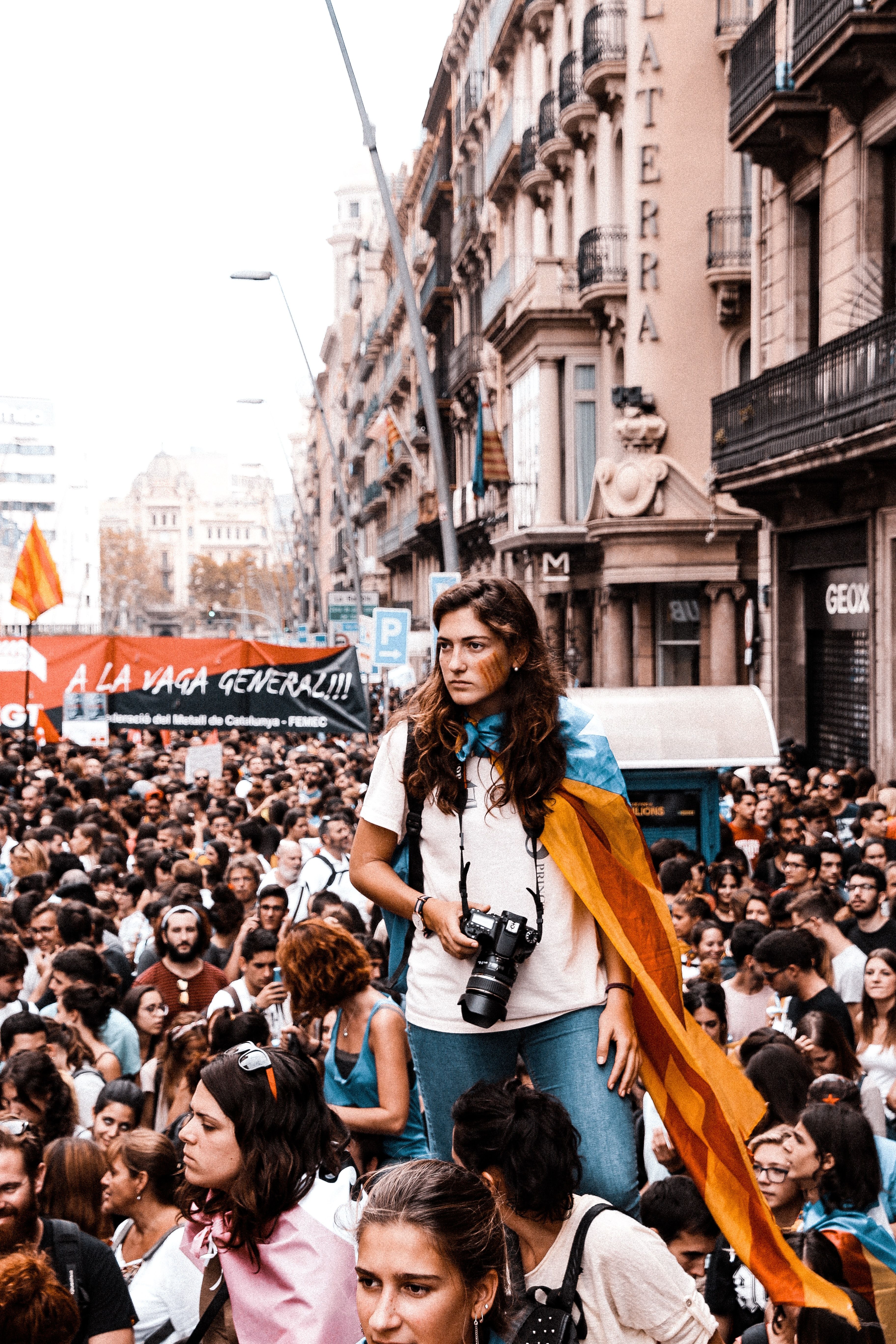
JUST before Christmas I held a video conference with two of the imprisoned leaders of Esquerra Republicana de Catalunya (ERC) – the main pro-independence party in Catalonia. Oriol Junqueras is President of the ERC and Raul Romeva is the former Foreign Minister of the Catalan government. Both are currently serving prison sentences of 13 years and 12 years respectively for their part in the peaceful and democratic independence referendum that was held by the government of Catalan in October 2017.
Rather than engage in a process of dialogue to resolve this constitutional crisis the Spanish government choose to arrest and imprison senior Catalan politicians.
Have you forgotten #UN Working Group on Arbitrary Detention's repeated calls on Spain to release #Catalan political prisoners?!#WGADhttps://t.co/9MHnVIZafB
— M Strubell (@mstrubell_EN) February 17, 2021
In Sunday’s regional election the pro-independence parties made important gains. The ERC won 33 seats. Junts per Catalunya (Together for Catalunya) won 32 and the pro-independence Popular Unity Candidacy (CUP) took nine seats. This means that in the 135-seat regional parliament the pro-independence lobby holds 74 seats – a clear majority and an increase of four from the last election. More importantly, and for the first time in modern history, the independence vote was over 50% of the electorate.
Self-determination and self-governance are the key issues at work in Catalonia and in the Basque country. The historical Irish experience of colonialism and our ongoing effort to win national self-determination give the people of Ireland a special affinity with those struggles and with other peoples who have been and still are struggling for independence and self-governance. The people of the Basque Country and of Catalonia who seek independence have a vision of a different kind of society. That is their entitlement. To determine their own future. That is our entitlement also. As it is in Scotland and Wales. And England also. Speed the day the right to self-government becomes a reality and the norm.
• Meanwhile, I’ve launched an Instagram account. If you want to access it log in at gerry.adams.sf

